


























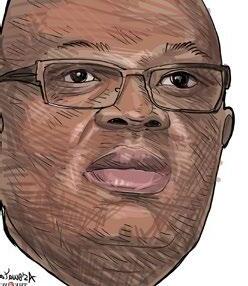

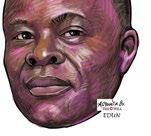
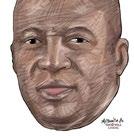
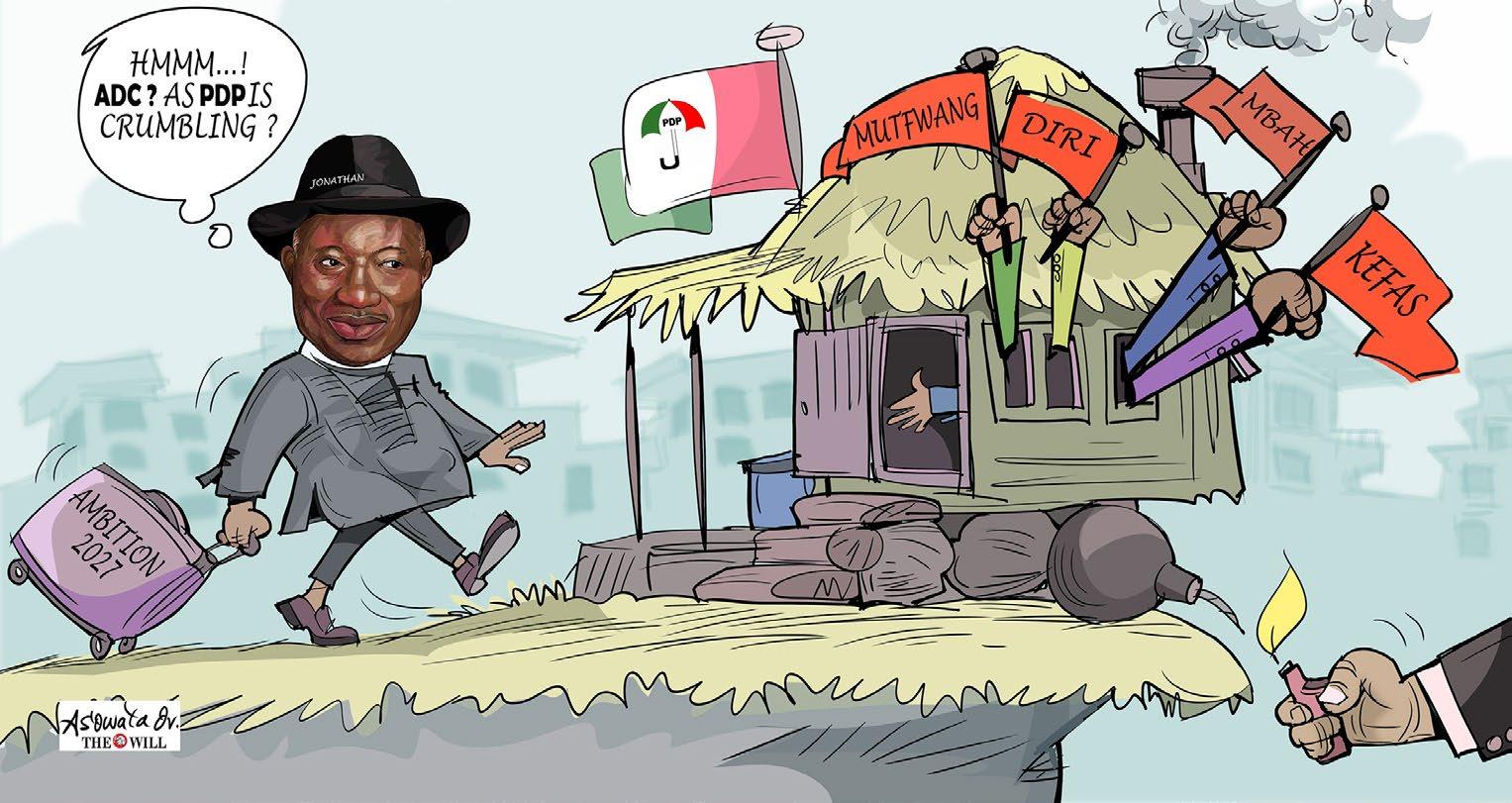



































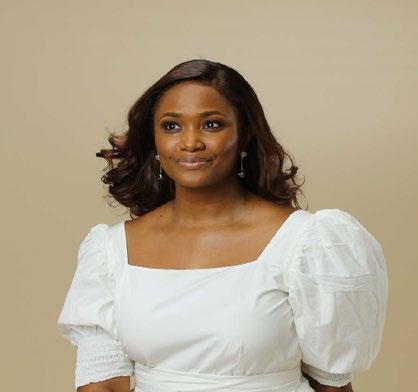
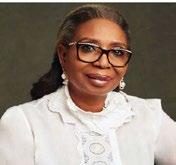






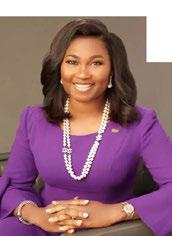





For decades, men have dominated the finance sector; however, in recent years, an increasing number of women have taken the helm of finance institutions. These women are more than individual success narratives; they represent a collective shift in how leadership is redefined in today’s economy. From transforming banking institutions to steering regulatory reforms, these women are actively reshaping the entire industry. Their impact extends beyond balance sheets and boardrooms. They embody resilience, mentorship, and vision, proving that leadership in finance is as much about empowering communities as it is about managing numbers.
What stands out most is their ability to navigate a space once dominated almost exclusively by men, while inspiring a new generation of women to see finance as a space where their voices belong. They show that influence today is not just tied to titles, but to the courage to lead boldly and differently.
Scroll on to pages 8 to 10 to see some of the women who have redefined the finance sector.
Like them or not, sneakers have become a fashion statement. When it comes to comfort, they are the go-to shoes for everyone. However, choosing the wrong pair will leave your feet sore, with blisters and very uncomfortable. This week’s fashion pages highlight what you should look for when buying a pair of sneakers to get the best of them. See pages 4 and 5.
Uneven skin tone, meaning some parts of your skin are lighter or darker than others, is a common concern among people. Several factors, including ageing, exposure to sunlight, and hormonal changes, contribute to uneven skin tone; we offer suggestions for addressing this issue on our beauty page. That’s page 12.
As always, we have a couple of movie reviews, as well as a playlist for you to download, on page 16.
Until next week, enjoy your read.







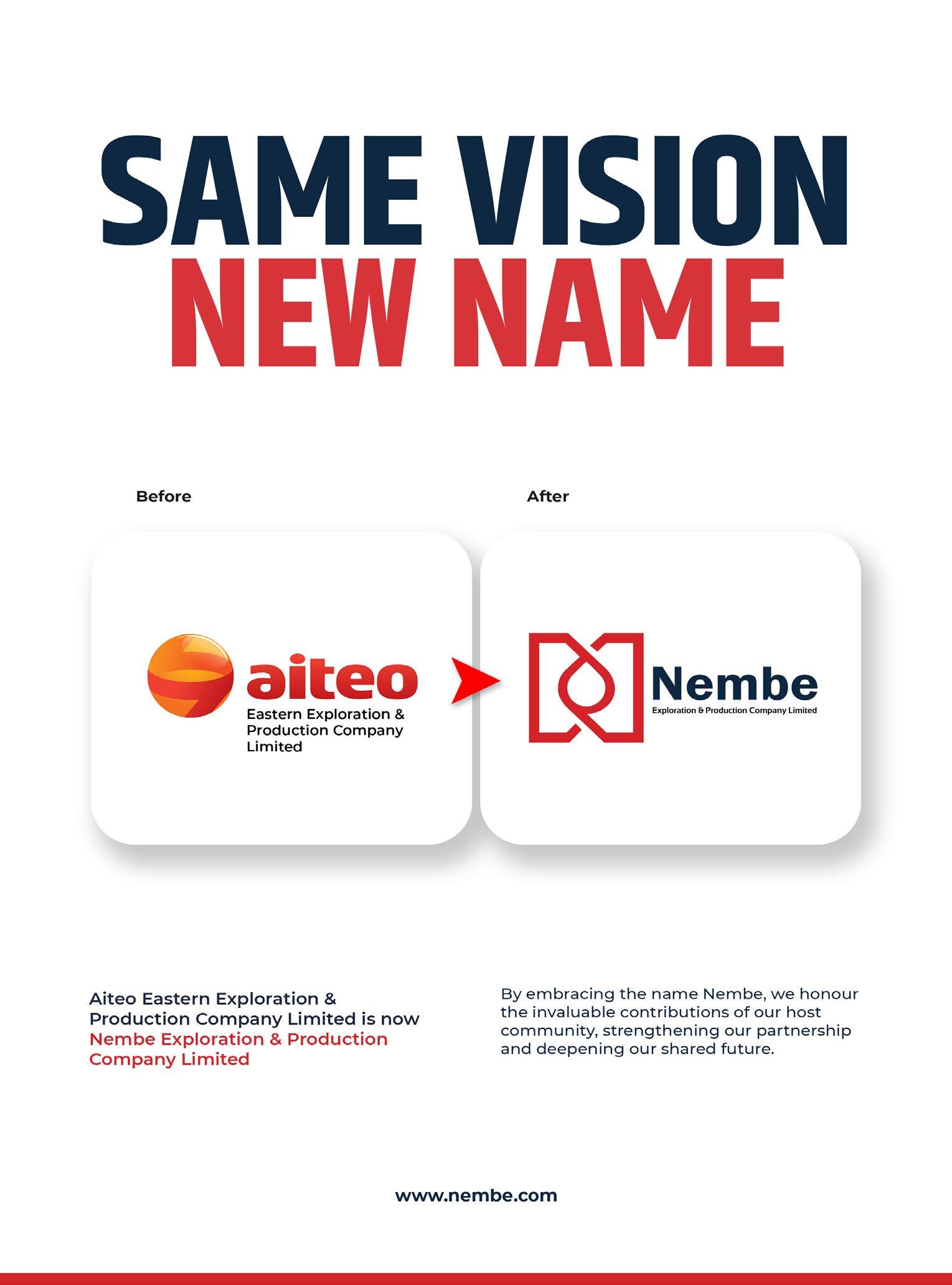
SUNDAY, SEPTEMBER 28, 2025


SUNDAY, SEPTEMBER 28, 2025




BY AMOS ESELE
The lingering crisis in the Peoples Democratic Party, PDP, is beginning to take a heavy toll, even on its leaders. As of now, plans for the proposed National Convention in November in Ibadan, the Oyo State capital, is almost in tatters, leaving a trail of confusion, frustration and bitterness.
THEWILL gathered that the micro-zoning of elective positions ahead of the convention has turned rancorous as some stakeholders within the party are unwilling to reach a compromise on the preferred candidates and the geo-political zone to produce which candidate.
checks. They are former Information Minister, Prof. Jerry Gana, ex-Governor Samuel Ortom of Benue State and former acting National Chairman of the party, Abubakar Kawu Baraje. On the other side, the Makinde group is rooting for aspirants from the North-West zone and has lined up a former Governor of Kaduna State, Ahmed Makarfi and ex-Kebbi governor, Senator Aminu Turaki as its preferred men. Damagun, who is from the North-East, wants to retain the post.
Damagun’s insistence on being re-elected is said to have offended the Wike group and for this he may find it difficult to get the cooperation of its ally, the National Secretary, Samuel Anyanwu as both officers are required by law to officially communicate with the Independent National Electoral Commission, INEC.
One such office causing disharmony within the PDP is the position of National Chairman. It has polarised the party into three groups, one led by the Minister of the Federal Capital Territory, Nyesom Wike and the other led by the governor of Oyo State, Seyi Makinde. The current National Chairman, Usman Damagun, stands alone as leader of the third group.
While the Wike led-group is insisting that the North-Central should be ceded the party’s National Chairman, it has drafted three aspirants for the position, according to THEWILL
“This situation has created disharmony and the notion that the party is currently in a limbo,” a senior party chieftain told THEWILL on Friday.
“It is so bad that there is a creeping feeling that PDP may not field a presidential candidate in 2027 as people are already talking about 2031 as the next possible date for such a thing. I am afraid some governors may defect in the weeks






leaders of the party in the zone to threaten to quit over the disputed National Secretaryship position. The fate of its candidate for the office, Sunday Udeh-Okoye, is uncertain, particularly after Senator Anyanwu, a Wike ally, was reinstated following a fence-mending prenational convention decision.
Having got back his position, Anyanwu is said to have vowed to swim and sink with Wike. He had ‘suffered’ for disobeying the minister’s order not to sign the presidential nomination form of Atiku Abubakar as the party’s candidate in the 2023 general election. Wike, who was governor of Rivers State then, had been aggrieved over what he termed the manipulative way that led to Atiku’s victory and subsequently formed a G-5 PDP governors’ group that worked against the interest of the party in that election.
The governors barely got Anyanwu to co-sign with Damagun, the papers informing INEC of its 102 NEC. Another hurdle looms for the party as it plans its 103 NEC scheduled for October 15, 2025, when the leadership is expected to harmonise positions ahead of the national convention.
With Anyanwu sticking to the Wike group, made up of Ortom and other former governors - Ayo Fayose of Ekiti state, Okezie Ikpeazu of Abia State and Ifeanyi Ugwuanyi of Enugu State, all of who met recently and issued a six- point demand, including rejection of any form of micro-zoning, demanding recognition of the South-South congress held in Calabar and supporting the North-Central zone to lay claim to the Chairmanship position, the party is almost back to another round of crisis that may scuttle the convention.
The PDP Governors Forum and Damagun have since called the bluff of the Wike group, insisting that the plan for the convention would go on.
For Governor Muftwang and Kefas, sources say they are simply fed up with the continued crisis in the party that has reduced its public image in the estimation of politically discerning Nigerians. Muftwang is also worried that the APC could sweep him out of office, using the power of the presidency. Their Bayelsa counterpart, Douye Diri, who had in July 2025 denied any plans to defect to the APC despite being aware of the support for his defection by 19 out of 24 lawmakers in the state, is said to be having a rethink following the current stalemate in the party. He is doing his second term, but a defection to APC will give him the powers to determine who succeeds him and enable him to retain his influence in the state. The governor is said to be keenly watching the body language of his kinsman and former President, Goodluck Jonathan, who is intensifying efforts to seek alliances to make a comeback.
Given the circumstances, two other governors are still making overtures to the APC. They are Governor Ademola Adeleke of Osun state and his Zamfara counterpart, Dauda Lawal.
Governor Adeleke had almost concluded plans to defect to the APC when the local leadership
of the opposition APC unanimously rejected his moves.
A major reason for his planned defection was the inability of his administration to fund local government areas on a sustainable basis, following the lingering legal battle with the Federal Government over withheld local government funds since March. The central government has refused to release LGA funds following the dispute over the conduct of LGA poll in February 2025.
rebellion against the party in 2019.
Jonathan's recent visit to the National Chairman of the African Democratic Congress, ADC, Senator David Mark, the first public visit to any political party leader since his reported comeback bid, marks the beginning of what sources describe as the former President’s determination to actualise his ambition.

Lawal is facing a similar challenge with the APC in his state, following an altercation with his predecessor and current Minister of State for Defense, Bello Matawalle, whom he accused of fueling insecurity in the state. The crisis in the PDP has provided an added impetus for both governors to keep their defection plan in the works. Adeleke faces re-election in September 2026.
Unlike Adeleke, whose state is among the eight states that undergo off-season re-election, Lawal’s second tenure re-election comes up in 2027.
The PDP currently controls 10 states – Zamfara, Osun, Taraba, Plateau, Enugu, Oyo, Bayelsa, Rivers, Bauchi and Adamawa, while the APC controls 23. The NNPP, APGA and LP have one state each under their control out of the 36 states in the federation.
JONATHAN 2.0 LOADING?
Since disclosing his plans to consult widely before taking the bait to contest the presidential election in 2027, former President Jonathan, whose eligibility to run for office again is still a highly contentious issue because he had been sworn in twice as president previously, has divided opinion in the PDP. Expectedly, some party bigwigs want him back. Others vehemently oppose his plan, THEWILL has gathered.
Reliable party sources say the internal wrangling in the party has left him with no choice than to explore alliance with another political party. The former President is said to be wary of history repeating itself in the PDP: The disunity in the party in 2015 that contributed to his defeat in that presidential election and the G-5 governor’s
“Since disclosing his plans to consult widely before taking the bait to contest the presidential election in 2027, former President Jonathan, whose eligibility to run for office again is still a highly contentious issue because he had been sworn in twice as president previously, has divided opinion in the PDP
In the company of Mark’s colleague at the Senate, Senator Emmanuel Paulker from Bayelsa State and former Reps Muhammad Bawa, who recently defected from the PDP to the ADC in Taraba State, Jonathan met with some leaders of the ADC in the home of the former President of the Senate, Mark last week.
A source at the meeting confided in this newspaper that both Jonathan and Mark “had a one-on-one discussion for about an hour on how to move Nigeria forward.”
Although the source clarified that the former President did not appear to be planning a defection to the ADC yet, he emphasised that the governing APC and ADC are the two major political parties to contend with in Nigeria as far as the upcoming 2027general election is concerned. "Anyone that has elective interest in 2027 will have to choose between both parties,” the source said.
The meeting had been timed to coincide with the stakeholders meeting of ADC leaders held a few hours earlier. The ADC Caucus meeting, presided over by Mark, was attended by former Vice President Atiku Abubakar; National Secretary, Ogbeni Rauf Aregbesola; National Publicity Secretary, Bolaji Abdullahi; former Kaduna State Governor, Mallam Nasir el-Rufai; former Sokoto State Governor, Senator Aminu Tambuwal; former Secretary to the Government of the Federation, Babachir Lawal; and former Rivers State Governor, Chibuike Amaechi. Labour Party leader and coalition member, Peter Obi was visibly absent, although he was said to have sent his apologies and reaffirmed his commitment to the coalition in a statement issued by Tanko Yinusa, National Coordinator of the Obidient Movement. The main agenda was funding, according to THEWILL checks.
But Jonathan’s visit hours later set the ADC leaders thinking.
PDP/ADC ALLIANCE?
Sources at the stakeholders meeting and Jonathan/Mark meeting confided in THEWILL that after the former President’s visit, they could foresee the ADC and the PDP having a working agreement for the 2027 election. Presidential primaries are due next year as prescribed by the electoral law.
“For now, the question is not whether Jonathan is going to run or not. Even if he is going to run, like any other candidate, he must do so in an atmosphere of unity, on a formidable support base and political structure. At the end of the day, ADC and PDP may work together,” the source told THEWILL, asking not to be unmasked.


BY FELIX IFIJEH
President Bola Tinubu, on Friday, arrived in Lagos on a working visit after attending the coronation of the 44th Olubadan of Ibadanland, Oba Rashidi Adewolu Ladoja, in Oyo State.
The visit to Lagos comes ahead of Nigeria’s 65th Independence Anniversary, which the presidency said would be marked in a low-
key manner.
A statement signed by Bayo Onanuga, his Special Adviser on Information and Strategy, said while in Lagos, the President will meet with players in the private sector and senior government officials. He will also commission the remodelled National
Theatre, renamed the Wole Soyinka Centre for Culture and the Creative Arts.
According to the presidency, Tinubu will travel to Imo State on Tuesday to inaugurate projects executed by Governor Hope Uzodimma.
BY LADI DAPSON, MAIDUGURI
Major General Uwem Bassey, the Chief of Operations (Army), has charged field commanders of the Joint Task Force (North East), Operation Hadin Kai, to sustain operational momentum and embrace innovative strategies in the ongoing fight against terrorism in the North East. Bassey gave the charge during a two-day operational assessment visit to Headquarters Theatre Command OPHK, Maiduguri,
to sustain and strengthen cooperation with other security agencies. He commended the synergy already achieved, noting that collective effort remained crucial in dismantling terrorist networks.
The visit featured interactive sessions with sector and component commanders, during which operational matters and challenges were extensively discussed.
maintaining an aggressive posture to dominate their areas of operation. He also interacted with members of the Hybrid Forces and Civilian Joint Task Force (CJTF), conveying the appreciation and encouragement of the COAS.

The visit, conducted on behalf of the Chief of Army Staff (COAS), Lieutenant General Olufemi Oluyede, was aimed at assessing operational effectiveness, boosting troops' morale, ensuring strategic alignment, and providing direct support in the theatre. Speaking during the tour, the Army Operations Chief conveyed the COAS’s commitment to directly engage with commanders, review progress, and address challenges requiring immediate intervention.
He urged troops to “go all out, dominate every space, and deny terrorists freedom of action,” stressing that fresh and innovative approaches were vital to achieving decisive outcomes.
Maj Gen Bassey also emphasised jointness in operations, calling on land, maritime, and air components of OPHK
His tour covered key locations including 21 Armoured Special Brigade, Bama; 151 Battalion, Banki Junction; 152 Battalion, Banki; and Forward Operating Base (FOB) Bula Yobe. At each location, he was separately briefed by formation and unit commanders on operational activities and challenges.
He assured them that the issues raised would be given urgent attention. Maj Gen Bassey appreciated the troops on their impressive battle performance and urged them to sustain the operational tempo.
While addressing troops, Maj Gen Bassey reiterated the Nigerian Army’s zero tolerance for indiscipline and cowardice in the theatre. He urged personnel to make full use of available firepower to deal with terrorists decisively,
He reminded them of their vital role as sons of the soil in defending their communities, urging them to remain loyal, courageous, and steadfast. Maj. Gen. Bassey cautioned against acts of double-dealing, warning that intelligence leaks to terrorists undermine troops and endanger local communities.
He charged all personnel and auxiliary forces to remain focused and resolute, declaring: “Some may appear friendly by day but act as enemies by night. Such conduct will not be tolerated. “We must all stand firm, remain disciplined, and fight with every resource at our disposal until terrorism is decisively defeated.”
He assured that troops, working in close coordination with other components and agencies, would continue to sustain aggressive operations to dominate the battlefield and deny terrorists freedom of action.
BY AMOS OKIOMA
The Bayelsa State Commissioner of Police, Francis Idu, has confirmed the arrest of six suspects in connection with the August killing of Police Constable Oboh Goodluck by suspected cultists in the OMPADEC area of Amarata, Yenagoa.
Speaking during the service of songs and lying-in-state for the slain officer, CP Idu said the command was closing in on the key suspect, described as a notorious killer wanted for multiple murders.
He vowed that all those responsible would be brought to justice.

“The deceased constable acted within the law to confront and defend the people against seven armed hoodlums.
“Goodluck Oboh gave his life to protect Bayelsa citizens. If he had succeeded, he would have proudly called himself a peacekeeper,” the CP said.
He warned that attacks on police officers would not go unpunished, stressing that the force would deploy all available resources to ensure perpetrators face the law.
He also assured rank-and-file officers that the police leadership
would stand firmly behind them.
CP Idu further disclosed that a formal request would be made to Governor Douye Diri to designate the site of Oboh’s killing as a monument in his honour.
Representing the bereaved family, Comrade Kwokwo Robert thanked the police for their support during the burial rites and called for justice.
“The relief we pray for as a family is justice. Those responsible for his killing should also pay the supreme price,” he said.


The ancient city of Ile-Ife came alive on Friday night as the Arole Oduduwa, Olofin Adimula, Ooni of Ife, Oba Adeyeye Enitan Ogunwusi, CFR, Ojaja II, ended his seven-day seclusion, marking a significant moment in the ongoing 2025 Olojo Festival.
Emerging from his private spiritual retreat, the Ooni offered heartfelt prayers for Nigerians across all walks of life. The seclusion, a core part of the Olojo Festival, is a period when the Ooni withdraws from the public eye to commune with the ancestors, cleanse the land spiritually, and intercede on behalf of his people.
It is believed that during this sacred time, he petitions divine forces for peace, prosperity, and protection for the Yoruba people and the nation at large.
While addressing the crowd that had gathered to welcome him back, the Ooni prayed for Nigerians, families, widows, political leaders, and communities battling hardship.
He emphasized that his days in isolation were dedicated to intense supplication for the unity and progress of the country.
“I have just left my seclusion. I am always happy to be there, and while inside, I prayed for the well-being of Nigerians. I prayed for families, for widows, for our leaders, and for everyone seeking divine help. Now, as I return to the people, I extend those same prayers openly,” the Ooni said.
His emergence was greeted with jubilation by residents, tourists, and dignitaries who had trooped into Ile-Ife ahead of the festival’s grand ceremonies. For many, his prayers serve as reassurance at a time when Nigerians face economic and social challenges.
The Olojo Festival, tagged “Cultural Rebirth” in 2025, began on Thursday, September 25, with traditional games, a cultural talent hunt, and a colloquium. Friday, September 26, coincided with the Ooni’s appearance, featuring community cleansing rituals and what many described as his “terrestrial message to the world.”
Saturday, September 27, is the grand cultural procession where the Ooni is expected to wear the
sacred Aare crown, believed to be the original crown of Oduduwa, progenitor of the Yoruba race.
On Sunday, September 28, the programme will continue with the Ojo Ajaye (Grand Royal Reception), Adire Oduduwa Cultural Exchange Exhibition, and the Ooni’s Ife Award for Community Service 2025. The festival will conclude on Monday, September 29, with ancestral rites and the grand finale of the cultural talent hunt.
The Ooni’s seclusion and prayers are not just cultural rituals but also symbolic acts that reinforce his role as both a spiritual father and custodian of Yoruba traditions. His prayers, offered behind closed doors and later in public, are seen as channels of hope for millions of Nigerians.
Political leaders, traditional rulers, and cultural enthusiasts who witnessed his emergence described it as a moment of renewal for Nigeria. Many interpreted his prayers as timely, given the country’s economic challenges, rising insecurity, and calls for unity.
BY ABDULLAHI YUSUF
The Kano State Shura Council has urged residents of the state to maintain the existing peace and harmony in the wake of petitions on blasphemy against Prophet Muhammad (SAW), allegedly committed by an Islamic scholar, Sheikh Lawan Triumph, now before it. The Shura Council, which comprises renowned Islamic scholars, was set up by the State Government to advise it on Islamic Jurisprudence.
Some Islamic organisations had petitioned the council, alleging that Sheikh Lawan Triumph had blasphemed the Prophet by saying things in disrespect to him.
The Council’s Secretary, Shehu Wada Sagagi, made the call while briefing journalists shortly after the council’s meeting on Friday.
"That’s the resolution today. Our only call is for people to maintain peace and harmony in the state, considering the fact that in the seven Northwestern States, only Kano appears to be peaceful, and we have a duty, all of us, to maintain this peace, at least for the economic and social progress of the state,” he said.
Sagagi said the council would invite the petitioners to elaborate on their allegations, and that Sheikh Triumph, too, would be invited to defend himself.
"Today, the State Government, through the Secretary to the State Government, forwarded all the petitions and counter-petitions against Malam Lawan Triumph.
"After deliberations, the committee resolved that both parties will be invited for clarification and defence.
Thereafter, the committee will deliberate strictly in line with Islamic jurisprudence before advising the government accordingly”, the Secretary said.
This, he said, would enable the body to deliberate on the matter and appropriately advise the State Government in line with Islamic jurisprudence.
He added that the accusations remain mere allegations until proven before the council. He commended the State Government for referring the matter to the council so as to do the needful in line with its mandate.
The State Government had earlier said that it had received petitions and counter-petitions from various Islamic organisations over the comments allegedly made by Sheikh Triumph.
President Bola Tinubu (l) receiving report on the Ogoni Consultations from the Chairman, Ogoni Dialogue Committee, Prof. Don Baridam. during a visit of the committee to the Presidential Villa in Abuja on September 24, 2025.

The Aba Independent Power Project, developed by Geometric Power, Nigeria’s only integrated electric power company, is world class, according to the American ambassador to the country, Richard Mills.
Mills made known his assessment of the company today after he led a team of top American embassy officials on a tour of the firm’s facilities in the Osisioma Industrial layout in Aba, Abia State’s economic nerve centre.
He stated: “This is world-class, reflecting the kind of innovation and commitment needed to address Nigeria’s energy challenges”.
The facilities the American delegation inspected include the turbines from General Electric, the world’s biggest and oldest electricity equipment manufacturing firm which is based in the United States.
The ambassador and his team also inspected the stateof-the-art digital SCADA facilities used in the distribution and management of electricity in all Geometric Power’s 30 feeders.
They were, in addition, shown the company’s massive steel tubular poles comparable to the poles in San Francisco, California, and Tokyo, Japan, which are earthquake prone.
“Though there are no natural disasters like earthquake recorded in the Aba Ring-fenced Area served by Aba Power which comprises nine of the 17 local government areas in Abia State”, said by Professor Bart Nnaji, the Geometric Power chairman, told the visitors, “we installed them to ensure that the Aba people have uninterrupted power in the event of any unexpected disaster”.
The tubulars are buried 10 metres inside the ground to withstand extreme elements, Nnaji, a former Minister of Power and globally respected engineering researcher in the United States before he returned to Nigeria, explained to the Americans.
He also revealed that Geometric Power is working with international companies to develop fresh power projects to ensure Nigeria’s energy security.
The ambassador commended Geometric Power for its endto-end business model which makes it the only Nigerian power group that generates power and distributes to a dedicated area.
“Nigerians are globally known for their creativity and talent”, said Mills”, but regretted that “they lack the technical training needed to maximize opportunities at home and abroad”.
After listening to Geometric Power’s Director of Training and Development, Mills also expressed satisfaction with the firm’s arrangements with the National Power Training Institute of Nigeria (NAPTIN) and the Industrial Training Fund (ITF) for the training and retraining of its workforce.
“These arrangements make the entire enterprise a sustainable business”, he added. Among the people on the ambassador’s team were Rick Swart, the United States consul general in Lagos; Mike Ervin, chief of the political and Economic section of the embassy; and Julie McKay, the chief of public diplomacy.
FROM JOSEPH AMEDU, LOKOJA
The National Orientation Agency (NOA) has called on Nigerian youths to reject all forms of violence and drug abuse, emphasizing that they are the pride of the nation and the hope for a better future.
The Director General of NOA, Lanre Issa-Onilu, made this appeal in Lokoja , during the North Central Zonal Campus Debate Series 2025, themed "Unity in Diversity: Defining Nigerian Identity in a Multicultural Society."
institutions across the 36 states and FCT submitting video entries that are screened based on evaluative criteria.
"The winning institutions advance to the national stage, which will take place in Abuja during Nigeria's 65th Independence Anniversary celebrations," he said.
"The final will be hosted at the Presidential Villa, where President Bola Tinubu will unveil the National Value Charter that enable the voices of the youths to be celebrated," he said.
Issa-Onilu emphasised that NOA has developed new platforms "to ensure that youths' voices are heard, and the agency is committed to promoting unity and diversity across the nation".
Earlier, the Kogi State NOA Director, Mr Patrick Edogbanya, commended students, lecturers, rulers, and organizations for active engagement in Agency initiatives. "The campus debate series is a testament to NOA's dedication to empowering youths and fostering a sense of national identity,"he said.
The debate series, brings together students from various institutions across the country to engage in intellectual discussions and promote unity, patriotism, and national identity. Issa-Onilu, represented by North Central Zonal Director, Dr Priscilla Gondoalour, said the debate series is not merely a competition but a strategic platform for civic engagement.
He urged youths to shun violence, drug abuse, and hooliganism, and instead uphold values that promote unity and patriotism.
"The debate series has a three-tier format, with
In their respective goodwill messages, the Chairman Jama'atu Nasiru Islam (JNI), Amb. Usman Bello; the Estu Adankolo, Chief David Agbayi, along with several Deans from various universities, lauded the initiative. They praised NOA for its unwavering commitment and innovative strategies aimed at fostering unity in diversity throughout the country.
He commended the NOA zonal and state directors, staff, facilitators, and stakeholders for making the debate series nationwide and enabling the platform for Nigerian youths to thrive.

The winner of the competition, Miss Gift Adejoh, from Federal University Lokoja, was awarded a certificate for her outstanding performance.
Adejoh commended NOA for the initiative, saying it would go a long way to help the Nigerian youth to uphold values that promote unity and patriotism.



BY FELIX IFIJEH
The Nigerian National Petroleum Company Limited (NNPC Ltd) has described its re-entry into Ogoniland as a historic milestone that goes beyond oil production, symbolising justice, healing, and national reconciliation in line with President Bola Tinubu’s Renewed Hope Agenda.
Speaking at the presentation of the Ogoni Consultations Report at the State House, Abuja, on Wednesday, President Tinubu acknowledged the sacrifices of the Ogoni people, stressing that the initiative reflects the government’s recognition of their long years of pain.
“We are not, as a government, taking lightly the years of pain endured in Ogoniland. We recognise that, otherwise we would not be here today… We declare with conviction that hope is here and is back with us,” the President said.


In a statement on Friday, NNPC’s Chief Corporate Communications Officer, Andy Odeh, quoted the

Group Chief Executive Officer, Bashir Bayo Ojulari, as reaffirming the company’s commitment to the Ogoni re-entry plan.
He described the development as a bold step towards equity, prosperity, and inclusive nation-building.
“The re-entry into Ogoniland is not just about oil and gas. It is about justice, healing, and charting a new future for our nation.
“It demonstrates that equity can exist in national development, and that oil can co-exist with environmental stewardship and community prosperity,” Ojulari said.
Ojulari commended the National Security Adviser, Nuhu Ribadu, for convening a committee that brought stakeholders together to achieve consensus.
He also praised the work of Professor Don Baridam and members of the Presidential Committee for
producing a report that, he said, reflects fairness and inclusivity.
He further assured that NNPC Ltd would prioritise community engagement, infrastructure development, and local enterprise support in Ogoniland.
According to him, the company has already embarked on road construction, infrastructure upgrades, and economic empowerment programmes designed to rebuild trust.
“NNPC Ltd is determined to transform Ogoniland from a symbol of conflict into a beacon of reconciliation, renewal, and sustainable progress,” he added.
Ribadu, in his remarks, said the breakthrough underscored the power of collaboration, while Professor Baridam thanked the President for his commitment to dialogue-driven solutions that restored trust and renewed hope among host communities.
Insolvency experts have called on banks and practitioners to align loan agreements and practices with the rescue provisions of the Companies and Allied Matters Act (CAMA) 2020.
Mr Albert Folorunsho, the Vice President, Business Recovery and Insolvency Practitioners Association of Nigeria (BRIPAN), made the call at BRIPAN annual conference gala night on Friday in Lagos.
Folorunsho noted that banks were still used to provisions under the old law that allowed appointment of receivers or receiver-managers to sell or manage distressed companies. He, however, stated that CAMA 2020 introduced administration as a rescue mechanism.
Folorunsho stressed that banks must make adequate provisions in loan agreements to empower them to appoint administrators rather than limit recovery to receivership and liquidation.
He also urged the association’s newly inducted members to demonstrate the highest level of integrity, continuous learning, and the adoption of modern tools such as Artificial Intelligence (AI) in managing distressed businesses. “Insolvency practitioners must uphold a
high level of integrity, continuous learning, and fiduciary responsibility to not only creditors but also debtors, shareholders, and, in some cases, the courts.
“They must understand that appointment as a receiver, manager, or administrator does not make them owners of the company. “They are agents of their appointers, and their duty of care extends to all stakeholders,” he said.
Folorunsho said the two-day conference had achieved its objectives.
According to him, the conference judicial roundtable addressed contentious insolvency issues, cross border insolvency issues, the role of AI in insolvency practice among others.
“AI could be deployed to analyse large data sets, predict early signs of company distress, and enable timely interventions through company voluntary arrangements or administration rather than liquidation.
“With AI-driven deep learning and data analysis, insolvency practitioners can evaluate business risks more accurately and adopt rescue strategies before companies collapse,” he said.

Also speaking, BRIPAN President, Mr Chimezie Ihekweazu, noted that the inductees were joining at a time when Nigeria is repositioning its insolvency framework under CAMA 2020
Ihekweazu, a Senior Advocate of Nigeria, said the Act moved practitioners beyond the old tradition of mere receivership and liquidation into a more progressive rescue culture.
He told the inductees: “As you step into this field, remember: integrity is your greatest asset and the power you hold must be exercised with humility, professionalism, and fairness.
“Knowledge is also key as this profession demands continuous learning. “I charge you, therefore, to embrace lifelong learning, uphold the highest ethical standards, and see yourselves as custodians of economic value.”
The induction formed part of activities lined up for the association’s 2025 international conference in Lagos. 103 professionals were inducted into the institute while 10 others were elevated to fellowship level. (NAN)
BY FELIX IFIJEH
Afew hours after he officially handed over the reins of administration to Governor Siminalayi Fubara at the end of the six-month emergency rule on Thursday, September 18, 2025, Vice-Admiral Ibok-Ete Ibas (retd.) immediately faced another controversy. This time, it is a scrutiny of his tenure as Sole Administrator.
Except Governor Fubara who has uttered not a word, the Rivers public and the reinstated lawmakers jointly want Ibas to render an account of his tenure. Initially, Ibas was summoned by the Martins Ameawhule-led Rivers State House of Assembly, but he fiercely resisted the lawmakers, describing them as lacking the powers to summon him. According to him, the only authority that can query him is President Tinubu, who appointed him.
Available data shows that the oil rich state received about N150 billion in Internally Generated Revenue between March and September 2025 ( the life span of the emergency rule). During the same period, the Federal Accounts Allocation Committee, FAAC, allocation reached N254.37 billion. Also, Governor Fubara reportedly left behind a total of N300 billion before he was suspended. Moreover, the Senate approved a take -off budget of N22 billion upon request by President Bola Tinubu in March, 2025.
Rivers Assembly resolutions on the matter states, “To explore the process of knowing what transpired during the emergency rule, with regard to spending from the consolidated revenue fund for the award of contracts and other expenditure.”
Ibas' media aide, Mr Hector Igbikiowubu, rejected moves by the Rivers Assembly, dismissing it as, “an unnecessary display of power.” While he acknowledged the powers of oversight of the lawmakers, he, however, disagreed with their approach. He asked if the lawmakers were the appointees of the Sole Administrator.
“But like I asked earlier, were they the ones that appointed the administrator? So, if you didn’t appoint the administrator, it goes to reason that you have certain limitations. When you also realise that the administrator was appointed by the President, it goes without reason that the administrator acted for and on behalf of the President,” he reportedly said, adding, “When you also reason that the administrator was supervised by the National Assembly, it goes without reason that when you decide to probe the administrator, you’re invariably saying that you will be probing the administrator and the National Assembly.
THEWILL gathered that the Presidency was miffed that Ibas would be referencing President Bola Tinubu as the only one who can question him on accountability and due process as it raised the suspicion that the President was giving him daily orders to run the administration for which he had been appointed on trust. Yet he did not consider it necessary to render accounts immediately he vacated the office.

reportedly arrived at the presidential villa around 5:50 pm on that day, accompanied by the Minister of Finance, Wale Edun and EFCC Chairman, Ola Olukayede.
Edun had earlier entered the villa, left and returned with a file, indicating the meeting’s seriousness. Ibas’ meeting with President Tinubu is believed to be connected to the Assembly’s investigation plans, but details of the closeddoor meeting are yet to be made public. The former administrator’s rejection of the probe has set the stage for a potentially contentious examination of his tenure.
Meanwhile, the Socio-Economic Rights and Accountability Project (SERAP) has called for a probe into the financial dealings of the former Sole Administrator. SERAP demanded clarity on how the Sole Administrator managed over N254.37 billion received from the Federation Account between March and August 2025.
In a Freedom of Information (FoI) request, the rights group asked Ibas to account for allocations, including a reported N22 billion allegedly budgeted for installing CCTV at the State House. Saying that Nigerians have the right to know how FAAC allocations, IGR and donations were spent under emergency rule, SERAP argued that full disclosure would promote transparency, accountability and help to address allegations of corruption or mismanagement during his tenure.
According to SERAP, its request aligns with the Freedom of Information Act, Section 39 of the Nigerian Constitution, Article 9 of the African Charter on Human and Peoples’ Rights, and Article 19 of the International Covenant on Civil and Political Rights—all of which guarantee citizens the right to access official information.
records.
Similarly, other Civil Society Organisations in Rivers State, namely the Coalition of Civil Society Organisations and the Civil Liberties Organisation, CLO, have vowed to ensure Ibas was held to account for his tenure to maintain a full closure to the “illegality,” of the period. have demanded accountability from the sole administrator over the money the state received from FAAC.
Enefaa Georgewill, Chairman of the Coalition of Civil Society Organisations in Rivers State, who faulted the manner of Ibas appointment, insisted that the Sole Administrator cannot receive and spend without audit and render account.
Georgewill said, “We will be calling on the Rivers State Governor to set up a panel of inquiry to ascertain how much he received both in terms of federal allocation and Internally Generated Revenue and how he expended it. This is because we suspect corruption. The reason being that almost all the major projects are stalled, even the House of Assembly Complex, which he tried to touch; he couldn’t even finish it. So, we will be calling on the governor and financial regulatory agencies to make sure that they question how the funds of Rivers State were expended.”
His CLO counterpart in Rivers State Emma Obe, said, “It has always been our position that the government in Rivers State under this emergency rule has been operating illegally because it didn’t follow what the Constitution prescribes. And so, whatever they have been doing is founded on this basis, and we have always asked for accountability.
President Tinubu had declared a state of emergency on Rivers State on March 18, 2025, leading to the suspension of Governor Fubara, his Deputy, Prof. Ngozi Odu and the 32-member House of Assembly. In their places, he appointed Ibas to preside over the affairs of the state. The regime ended on September 18, 2025 when President Tinubu announced the restoration of democratic governance and Ibas vacated office having sworn-in Dr. Iyingi Brown as Head of Service.
With the allegation of financial misappropriation hanging over his head and the stakeholders still to fully come to terms with the aftermath of emergency rule, Ibas may remain the spotlight for some time to come.

Worse off, he had to wait for the President to summon him in the face of the allegations of financial mismanagement swirling around him soon after he left office. To remedy the situation, the President had to wade into the matter on Thursday. Ibas answered the summons immediately. He
The group maintained that access to such details is a fundamental tool for public scrutiny, ensuring that government activities remain open to oversight and truthseeking. It insisted that the emergency rule in Rivers State cannot be used as a cover to withhold critical financial

It has always been our position that the government in Rivers State under this emergency rule has been operating illegally because it didn’t follow what the Constitution prescribes “















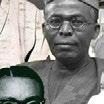





Page N600, 000

000
Double Spread Half Page N1, 200, 000
10X6 N700, 000
10X5 N650, 000
10X4 N600, 000
10X3 N500, 000
9X6 N440, 000
9X5 N395, 000
9X4 N335, 000
9X3 N310, 000

8X6 N410, 000

8X5 N380, 000
7X5 N320, 000



7X4 N315, 000

6X5 N280, 000

6X3 N145, 000
6X2 N85, 000
5X2 N70, 000
4X4 N160, 000
4X3 N95, 000
4X2 N65, 000
3X3 N60, 000
3X2 N50, 000
2X2 N30, 000
2X1 N15, 000 1X1 N7, 000
























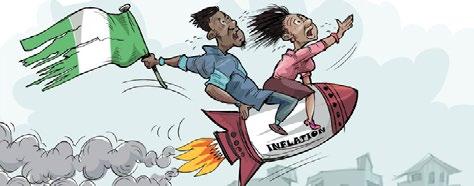
























For using the occasion of her 65th birthday to shine a light on a neglected national monument, the National Library project, Nigeria’s First Lady, Senator Oluremi Tinubu, has once again reminded the governing elite of their failings in project Nigeria, particularly in the aspect of education.
Capital Territory, Abuja, recently, the Minister in the company of the National Librarian, Professor Chinwe Anunobi, said that work on the deserted project would begin in June, 2025.

Senator Tinubu’s interest in reviving the National Library is thus a reflection of her high regard for education. To have devoted her birthday celebration as the occasion to launch a fund for the revival of the abandoned National Library is noble. We salute her courage and insight“
To an expert, the functions of a national library in any country include collecting and preserving a nation's literary, cultural and scientific heritage, acting as the official repository for published materials through legal deposit, serving as the national bibliographic control center and providing access to information for researchers and the public, increasingly with a focus on digital content. National libraries also support national development by coordinating library services, fostering literacy and conducting research.
Yet for the past 19 years, past Nigerian leaders thought nothing of the importance of a National Library to national development. For all of those years, the project has been on the drawing board. In fact, in March this year, Minister of Education, Dr. Tunji Alausa gave assurances of the Federal Government’s readiness to complete the project. Touring the abandoned project which is still lying fallow on Plot 35, Cadastral Business District in the Federal
Nothing was heard about it in June until the First Lady made it her birthday gift to Nigeria on September 24, 2025. For a project that was designed in 1981 and construction work started in 2006 and then stopped in 2012, Senator Tinubu’s gesture is commendable and instructive.
As the First Lady of Lagos State, she drove the Annual Spelling Bee competition for schools in Lagos State with such single-minded purpose that 21 years on, the competition is still being held in the state. Designed to boost academic excellence, literacy and self-confidence for better performance among learners in schools, the competition has spread across primary and secondary schools in the 20 Local Government Areas and 32 Local Council Development Areas of the state. At the end of the competition, the best among the students are made to symbolically assume the reins of power as governor of the state for a day.
This significant step has given children across the social strata in the state, a high sense of confidence and boosted their morale.
NIGERIA BUREAU:
36AA Remi Fani-Kayode Avenue, GRA, Ikeja. Lagos, Nigeria. info@thewillnews.com +234 810 345 2286, +234 913 333 3888

TEAM
PUBLISHER/EDITOR-IN-CHIEF –




BY SODIQ OYELEKE
The recent public spectacle involving Olasijibomi Ogundele, the Chief Executive Officer of Sujimoto Luxury Construction Limited and the Economic and Financial Crimes Commission (EFCC), has unfolded as a masterclass in how not to manage a corporate reputation crisis. As the public watched a prominent figure in Nigeria's real estate sector navigate serious allegations from both the EFCC and the Enugu State Government, it became glaringly clear that a reactive, emotional response is no match for a strategic, fact-based communications plan.
The drama began with a jarring wanted notice from the EFCC, a legal and public relations bomb. This was swiftly followed by the Enugu State Government’s damning claims of a failed N5.7 billion contract and abandoned project sites. This one-two punch set a formidable narrative, painting Sujimoto as a fugitive and a fraud. The company found itself on the defensive, with the accusers controlling both the facts and the emotional tone of the unfolding crisis. In a move that has bewildered public relations professionals, the immediate response was not a formal statement, a press briefing or a meticulously crafted legal brief. Instead, it was a video posted on social media. The CEO, Sijibomi Ogundele, appeared emotional and delivered a defensive plea.
While this may have been an attempt to humanise the brand and its leader, it lacked the strategic discipline required to counter such specific and severe allegations. Although an emotional appeal might be a potent tool in the political arena, where public sentiment and personal narratives often sway voters, it is a perilous strategy in the world of corporate crisis communications. We have seen politicians leverage public tears to prove their innocence or secure votes, a tactic that can work because politics is inherently a personal and emotive business.
A corporate crisis, however, operates on an entirely different dimension, one built on the pillars of trust, transparency, and fiduciary responsibility. By choosing an unfiltered, social media video as his primary defense, the CEO inadvertently applied a political playbook to a corporate problem. He unwittingly surrendered complete control of the narrative, inviting not empathy, but ridicule and skepticism. The message, meant to be a sincere plea for understanding, was easily interpreted as a panicked, personal reaction rather than a calm, professional corporate response. It created a perception of a CEO operating from a place of desperation, not authority.
A corporate leader in a crisis is expected to be a pillar of stability, a source of clear, unvarnished facts. The audience—investors, clients, and regulators— doesn't want to see a public display of emotion; they need to see a methodical, structured plan to address the problem. This is the fundamental difference. In politics, the individual is the brand. In business, the brand is built on a collective reputation of integrity and competence. By blurring these lines, the CEO placed the weight of the company's reputation on his own emotional state, a gamble that has, in this case, proved detrimental.
This approach stands in stark contrast to what a robust crisis communications plan would dictate. A well-advised CEO would have immediately convened

a crisis team — a war room of legal counsel and PR experts — to craft an immediate and controlled response. The initial message should have been firm but cooperative. This formal statement should have acknowledged the wanted notice and stated a clear, unwavering commitment to cooperate fully with the EFCC to clear his name.
This simple act of professionalism could have immediately shifted the public perception from one of a man in hiding to one of an individual calmly and confidently addressing a serious legal matter. It would have bought the company valuable time to assemble its facts and evidence. The most damaging part of the case came from Enugu State, with its explicit claims of shoddy work and project abandonment. Sujimoto’s response, while attempting to explain the situation by blaming inflation and other economic challenges, failed to directly counter these points with tangible evidence. The strategic error was in not immediately providing a counter-narrative built on a foundation of facts.
A savvy PR move would have been to release a detailed report or a professionally produced video showcasing the work that had been completed on-site. This visual evidence, combined with a clear timeline of events, a breakdown of funds spent, and professional assessments of the project’s progress, would have directly challenged the government’s narrative and put the onus back on them to justify their claims. In a situation where no tangible evidence exists to disprove a claim, a PR expert would advise a strategy of transparent cooperation and procedural integrity.
The goal is to make the process of your investigation your evidence. In Sujimoto's case, if concrete proof of work completion was sparse, the strategy should have shifted to showcasing the thoroughness of the company's internal review. Announcing the hiring of an independent, third-party auditor or law firm to investigate the matter would have added immense credibility. It signals to the public that you're not just saying you're innocent; you're actively and impartially seeking the truth.
This approach, while less dramatic than a video plea, would have ultimately been more effective in managing the crisis and rebuilding trust. The ultimate failure was the lack of a proactive, evidence-based approach. In a world of instant information and social media scrutiny, a crisis is not just a legal battle; it is a war for public perception. The most effective weapon in this war is not an emotional appeal but transparency, control, and a strategic, evidence-based narrative. By failing to deploy these tools, Sujimoto allowed his accusers to write his story for him, a difficult position from which to rebuild trust and a brand's reputation. This saga serves as a cautionary tale for corporate leaders everywhere: in a crisis, a company must be the source of truth, not a reacting voice in a social media echo chamber.
CORPORATE CRISIS, HOWEVER, OPERATES ON AN ENTIRELY DIFFERENT DIMENSION, ONE BUILT ON THE PILLARS OF TRUST, TRANSPARENCY AND FIDUCIARY RESPONSIBILITY
•Oyeleke is a Senior PR Consultant with SYAN Media and a member of the Advertising Regulatory Council of Nig
BY JAMES ABATI
As a new English Premier League (“EPL”) season began, Nigerians, particularly football fans, commenced the process of re-subscribing or upgrading their DSTV package to enable them to enjoy the action of a football-packed 2025/26 football season. All fans, from Manchester United Football Club supporters to Arsenal, Chelsea, Tottenham, Liverpool, and Manchester City supporters, are ready to be glued to their TV screens at home, at pepper soup joints and in viewing centres scattered around town. The magical sport that brings all persons together regardless of colour, race, ethnicity, and tribe is once again in motion with men becoming excited while their wives, girlfriends, and side chicks dread the months-long weekends of football that diverts their partners’ attention. Not to worry though, the result of the football matches usually determines the input and output of the match in the other room, an awry game can lower libido while a victorious game can boost the swagger for 90 minutes and more.
Now to the subject of this article which stems from the numerous arbitrary increases of DSTV subscription fees due to a lack of options and competitiveness in cable TV broadcasting. As we all know, DSTV enjoys a near monopolistic status within the Nigerian economy; gone are the days when it faced competition from other digital satellite television service providers such as HITV or High Television owned by its operators -Entertainment Highway Limited. This has resulted in an unfair pricing regime. For instance, Multi Choice Nigeria has increased its DSTV and GOTV bouquet pricing about 4 times within the span of the last two years, 2023 to 2025.
The increment occurred twice in 2023 and once in 2024, making it three times within the space of 12 months. The last increment took effect on the 1st of March 2025 with the pricing going up by at least 20% of the previous price. Expectedly this has led to a loss of about 1.4 million Nigerian subscribers between March 2023 and March 2025, bringing down its subscribers from 9.3 million recorded in 2023 to 7.5 million in 2025. This is according to the latest financial results released by its parent body, Multichoice Group.
Football is the mainstay of DSTV subscriptions in this fastevolving age of subscribers’ preoccupation with social media platforms like YouTube; streaming platforms like Netflix, Amazon Prime, Showmax and other online contentrelated platforms. Hence football provides an incentive for viewers to still subscribe to DSTV despite its exorbitant prices.
The crux of this discussion is the licensing right for airing the EPL, which is at the moment an exclusive preserve of MultiChoice’s SuperSport. For context, Super Sport has held Premier League broadcast rights since the EPL’s
inception in 1992, initially as M-Net Super Sport then Super Sport after the creation of DSTV in 1995.
This dominance was however challenged within the Nigerian broadcast space when in late 2006 its digital satellite television competitor and Nigeria’s first indigenous pay TV, HITV acquired the EPL broadcasting rights in Nigeria for the 2007 / 2008 and 2008/2009 seasons. The HITV’s acquisition of the EPL’s rights was a major event in the broadcasting landscape and a step forward in indigenous ownership of broadcasting rights. However, this evisceration of DSTV’s monopoly was short-lived as HITV lost the rights back to MultiChoice (owners of DSTV / Super Sport) starting from the 2010/11 season due to financial difficulties. Notwithstanding this collapse, what is of particular interest is the significance behind HITV’s acquisition of the EPL rights. The Cable provider was able to wrest the EPL rights from DSTV / Super Sport by making its acquisition bid on the premise that it would sub-license the rights to other indigenous cable TV operators.
This brings us back to the DSTV conundrum, since 2010/11 season, Multi Choice has been the exclusive broadcaster of the Premier League football games without any serious competition from domestic Pay TV operators. This contravenes the provisions of relevant broadcasting laws, codes and regulations, as well as competition laws.
For example, the 2020 Amendment to the 6th edition of the Nigeria Broadcasting Code prohibits exclusivity of sporting rights and provides for compulsory sub-licensing. Article 6.2.8 of the Amendment prohibits exclusivity while Article 9.01 aims to promote competition and prohibits broadcasters and licensees from entering into any form of broadcasting rights acquisition in Nigeria or anywhere in the world to acquire any broadcasting right(s) which excludes persons, broadcasters, or licensees in Nigeria from sub-licensing the same. Broadcasters are charged with the responsibility of ensuring access by all Pay TV platforms to premium content in the sports and news genres to “generate effective competition at the wholesale level for such genres”.
THE NBC IS A REGULATORY AUTHORITY IN THE BROADCASTING INDUSTRY AND IT IS WELL WITHIN ITS POWER TO MAKE CODES AND REGULATIONS THAT GUIDE THE BROADCASTING INDUSTRY
Additionally, Article 9.1.1.2 of the Amendment requires broadcasters to offer sports and news programmes and/or channels to other broadcasters for retail to residential subscribers in Nigeria on terms stipulated in the Amendment. Pursuant to the standards and terms in the code, a broadcaster must offer its premium content to other subscribers and fees to be charged to the sub-licensees must not exceed the prorated cost of acquisition of the sports and news programmes and/or channels by a subscriber on the platform of the licensee (i.e. Stipulated Prices).
*Continues online at www. thewillnews.com



Continues from page 34
Hogan Ekpo, Professor of Economics and Public Policy Emeritus at the University of Uyo, said the impression being promoted that the Nigerian economy is growing strong and in the right direction, is misleading. According to him, the economy is still largely dependent on oil which makes it more worrying because, “with a little shock in the international market, the whole thing will crumble.”

anything happens to the international oil market today, the whole thing will be wiped out because the economy is not producing.
PLC: rose 20.83% (recording an upward movement from N21.60 to N26.10).

He said having a prosperous Services sector without industrialization suggests that something is not in
Speaking as a guest on the popular Arise Television News ‘Morning Show’ on Wednesday, August 6, 2025, Prof Ekpo lamented the non-producing nature of the Nigerian economy which the authorities have continued to celebrate its “growing GDP” and high inflow of Foreign Portfolio Investment (FPI) against significant decline of Foreign Direct Investment (FDI). He maintained that the economy is not being built on a strong productive base and that the boom in Foreign Portfolio Investment, largely driven by short-term investments in stocks and government securities -- referred to as ‘Hot Money’, has no valueadding capacity in real terms of economic growth. He also added that the increasing national debt stock makes the matter worse as the huge debt is being serviced with revenue that ought to have been deployed towards building viable infrastructure.
“A major problem with our economy is this obsession for revenue. We want to increase revenue for consumption – give to the political class, to waste and to service debts. You do not look at the other side
“We celebrate external reserves. I was a member of the CBN Monetary Policy Committee. I can tell you that the reserves are provisional. It is temporary. If
“You must have a productive economy where your reserves are not dependent on the export of only crude oil; where the refineries and companies are producing, exporting and earning foreign exchange.”
In recent times, the non-oil sector has remained the top contributor to Nigeria’s GDP, as it accounted for 95.95 per cent in real terms to GDP in Q2 2025. This follows the substantial increase in tax revenue resulting from the massive reforms introduced by the government. However, oil remains the major foreign revenue earner and there is a limit to which tax could drive the economy if there is little production.
In the same vein, Mr Tilewa Adebajo, CEO, CFG Advisory, expressed concern over the series of reforms adopted by the current Nigerian government amid rising debts which are not positively impacting on the lives of the people -- to drive productivity. While he commends the reform initiatives, he argued that a sustainable productive base is necessary to achieve the long-term objectives of the reforms.
“Making matters worse, total government borrowing has hit the US$100 billion mark. Debt service costs have doubled from N8 trillion in 2024 to N16.3 trillion in the proposed 2025 budget, making debt servicing the largest expenditure item.
“This is unsustainable, especially as the amount surpasses the combined budgets for defence, security, infrastructure, education, and health, which total N14 trillion. The recent legislative approval of an additional US$21 billion in borrowing is a red flag,” the financial analyst and investment banking expert noted in his Half-Year Update on the Economy in August.
billion, contributing 83.27% and 14.53% to total equity turnover volume and value respectively. The oil and gas industry followed with 730.517 million shares worth N391.364 billion, while the services industry traded 128.647 million shares valued at N962.909 million.
In terms of indices, most finished higher with the exception of NGX CG, NGX Pension, NGX Insurance, NGX MERI Growth, NGX Oil and Gas, NGX Lotus II, NGX Pension Broad, and NGX Commodity Indices, which depreciated by 0.08%, 0.15%. 0.91%, 0.35%, 1.62%, 0.52%, 0.07% and 0.91% respectively. The NGX ASeM and NGX Sovereign Bond indices closed flat.
Furthermore, the week recorded 32 equities that appreciated, down from 40 in the prior week. 51 equities depreciated, higher than 41 previously, while 64 remained unchanged compared with 66 in the prior week.
Top Gainers of the Week
The leading gainer was THOMAS WYATT PLC, which appreciated by 22.68% (from N2.68 to N3.30). Other strong performers included:
• SECURE ELECTRONIC TECHNOLOGY: up 21.33% (from N0.75 to N0.91).
• MECURE INDUSTRIES
• CHELLARAMS PLC: advanced 11.30% (climbed up N14.60to N16.25).
• ROYAL EXCHANGE PLC: gained 10.29% (appreciating from initial price of N2.04 to N2.25).
Top Decliners of the Week WEMA BANK led with a loss of -12.41% (opened at N20.55 and closed at N18.00).
FIDELITY BANK PLC with a dip of -11.08% loss (downward movement from N20.75 to N18.45).
ETERNALLY PLC declined by -10.00% (depreciated from N31.00 to N27.90).
IKEJA HOTEL PLC saw a decline of -9.8% ( drop from N22.95 to N20.70).
AFRICA PRUDENTIAL PLC drop of -9.09% (opened at N15.95 and closed at N14.50).
Despite the week’s modest uptick, the breadth of decliners signals lingering caution. Investors may continue to see choppy sessions ahead, with opportunities in mid-cap counters and dividendyielding stocks. Macro cues such as FX stability, inflation control, and fiscal clarity will remain the key drivers for sustained upside.
The event was designed to foster stronger related challenges, and explore innovative and export ecosystem, including business Participants engaged in robust discussions Managing Director/CEO, Kayode Lawal, businesses to compete more effectively in
gathering was to address the real issues customers encounter in trade and export while identifying opportunities where Polaris Bank can provide practical, innovative solutions to support growth.
He stressed that Polaris Bank sees itself not only as a financial institution but also as a trusted partner in progress and a driver of long-term value creation. Also in attendance was Assistant Comptroller of Customs, Aondona Fanyama, who led a three-man delegation from the Nigerian Customs Service.
He spoke extensively on the workings of the Nigeria Trade Portal, B’odogwu and gave a practical demonstration of its application.
ACC Fanyama highlighted how the portal simplifies trade processes for exporters and importers, enhancing transparency, speed, and efficiency in cross-border trade.
In a show of collaboration, he also pledged swift resolution to two participants at the forum who had been

facing challenges with processing via the portal, thereby reinforcing the importance of such engagements in resolving realtime business concerns.
The event, held at Lagos Continental Hotel, Victoria Island, provided a platform for meaningful dialogue on trade finance, export readiness, compliance, market access, and the role of digital platforms in facilitating cross-border transactions.
It also offered participants the opportunity to interact directly with financial experts, policymakers, Customs officials, and industry leaders – opening doors for collaboration and sustainable growth.
The Bank had full representation of its executive management, including Executive Directors for Retail, Commercial and Corporate & Investment Banking, Chris Ofikulu and Abimbola Ozomah, with scores of strategic business leaders from across Treasury, Global Trade, Business Directorate, and Divisions.
Through the trade forum, Polaris Bank once again demonstrated its role as a forward-looking lender committed to supporting businesses, fostering economic development, and strengthening Nigeria’s participation in global markets.
The Forum reinforces the Bank’s positioning as a catalyst for trade expansion and customer empowerment, ensuring that its clients have the financial products, relevant advisory support, and opportunities required to thrive in today’s competitive global economy.
"Not every network is built to grow. Some are designed to protect power, not share it."
THE DOUBLE-EDGED SWORD OF NETWORKS
In policy, advocacy, and governance across Africa, networks are everything. Who you know, who knows you, and who’s willing to connect you can determine whether your idea is buried in committee or passed into law. Yet not all networks are created equal. Some act like acceleratorsenabling reforms to scale rapidly across institutions, regions, or sectors. Others act like traps - stalling momentum, hoarding access, or preserving the status quo in the name of gatekeeping.
HOW NETWORKS CAN STALL REFORM
a. Gatekeeping Without Accountability
Some networks are built primarily to protect access to power. They often form around political elites, industry incumbents, or senior technocrats who see new actors as a threat rather than a resource.
b. Exclusion Masquerading as Strategy
Networks that exclude youth, women, grassroots voices, or informal sector actors often do so under the guise of ‘expertise’ or ‘efficiency.’ But exclusion often weakens the implementation of reform.

Example: COVID-19 Palliatives and Response Networks
Across several African countries, COVID-19 response committees were largely composed of senior officials and international partners, with limited inclusion of civil society or youth groups. In Nigeria, this led to widespread public mistrust, logistical chaos, and, at one point, the looting of undistributed food warehouses. The failure wasn't just logistical. It was relational.
c. Too Centralised to Move
When a network depends on one or two dominant figures, it may appear strong but is actually fragile. These networks often collapse when leadership changes, or they become bottlenecks when decisionmakers are unavailable or unwilling to pivot.
Example: Zimbabwe’s Land Reform Networks
In the early 2000s, land redistribution was heavily tied to the centralised authority of President Robert Mugabe and his inner circle. Although this was justified as a populist policy, implementation became erratic, violent, and ultimately economically disastrous. There was no distributed network of accountability or shared leadership to course-correct.
NETWORKS THAT SCALE
In contrast, reform networks that scale tend to share these characteristics:
a. Distributed Leadership and Trust
Scalable networks decentralise authority. Leadership is shared, and influence is distributed across trusted nodes.
As profiled in my Shadow Networks article, the success of the Nigerian Startup Act was not just a legislative win, it was a relational victory. A coalition of tech leaders, policy advisors, and diaspora Nigerians worked informally and formally to move the Act forward. The group was young, dynamic, and operated largely through trust and shared purpose. Not hierarchy.
They scaled not because they had more power, but because they had more connection and agility.
b. Cross-Class and Cross-Sector Collaboration
Scalable networks intentionally bridge divides: between government and grassroots, elites and youth, civil society and business.
Example: Rwanda’s Umuganda System Meets Smart Policy
While Rwanda's formal governance system is highly centralised, the practice of Umugandamonthly community service, acts as a distributed community-building network. During reform rollouts (e.g. health insurance, sanitation), this social infrastructure is paired with smart digital coordination across ministries and local leaders.
The result was community buy-in without top-down coercion, enabled by a network that already existed informally.
c. Narrative Unity with Structural Flexibility
Scalable networks are united by purpose, but diverse in form. They leave room for contributors to selforganise.
Example: Burkina Faso’s 2014 Uprising and the Fall of Blaise Compaoré
In 2014, Burkina Faso witnessed a massive wave of citizen protests that ultimately ousted President Blaise Compaoré, who had ruled for 27 years and was attempting to amend the constitution to extend his tenure.
What made the movement effective wasn’t a single leader or organisation, but a coalition of networks that came together around a shared narrative: “Non à la modification de l’article 37” (No to changing Article 37, the term limit law).
• Youth-led groups like Le Balai Citoyen (The Citizen’s Broom) mobilised across cities and rural areas, using music, art, and social media.
• Unions, students, artists, and civil society each brought their own organising style, constituencies, and languages.
• Despite their differences, they converged on a

These networks often collapse when leadership changes, or they become bottlenecks when decision-makers are unavailable or unwilling to pivot
unified purpose: defending democracy.
The movement had no rigid hierarchy. By the end of October 2014, the protests had grown so large and sustained that Compaoré was forced to resign after his almost three decade rule.
Lesson: The uprising showed that when diverse actors rally around a focused, resonant narrative, even without formal structure, they can achieve seismic change. In many ways, this mirrors the ancient story of the Tower of Babel, where people unified under one language and purpose to build something extraordinary. While that Biblical effort was ultimately scattered by divine intervention, its early momentum showed the raw power of narrative unity and collective ambition, even among diverse peoples. Today’s networked movements often echo that impulse, to reach high by moving together, even without a single leader or rigid structure.
The real difference between change that lingers and change that leaps lies not in the vision, but in the vehicle - the networks that carry it.
Across Nigeria and Africa, policy stalls not for a lack of ideas, but because relational bottlenecks choke momentum. Where elite interests reinforce old hierarchies and gatekeepers circulate influence within narrow loops, even the most promising reforms can decay in committee rooms and senate chambers.
Yet, we have also seen the opposite: movements, ecosystems, and reform coalitions that defy hierarchy, flatten access, and scale trust. These networks aren’t accidental, they are intentionally nurtured, socially embedded, and structurally flexible.
This is the deeper story: networks are not just who you know, they are how you build. In Part Two, I will explore what it takes to design networks that scale with integrity.
Because in the age of networks, the ability to connect will matter more than the power to persuade.
Aramide Abe is a networking expert and a professional in international development. She is the convener of an African business leader network - Naija Startups. Follow arams on Twitter, Website - www.aramide.ng


BY ADENIYI BAMGBOYE
In the conventional narrative of employment, the act of resigning from a company is often framed as a severing of ties, a formal exchange where you return company property – the laptop, the access card, the office key – and walk away. But there’s a crucial distinction that’s often overlooked: While you relinquish physical assets, no one demands that you surrender the skills, experiences or the relationships you’ve cultivated during your tenure. Why? Because these are intrinsically yours, a personal investment that transcends any single employer.
This realisation forms the bedrock of a paradigm shift in how we approach our careers. It’s a recognition that every job, every role, every experience is, at its core, an opportunity for self-employment. Even within the structure of an organisation, you are fundamentally working for yourself, building your personal brand, expanding your skillset, and crafting a future that is independent of any one company’s success or failure.

Taking ownership of this growth is not just a wise career strategy; it’s the most secure and empowering path to long-term professional fulfilment. The experiences you accumulate, both positive and challenging, become invaluable lessons etched into your professional DNA. The projects you undertake, the problems you solve, and the successes you celebrate – all contribute to a growing repertoire of capabilities that make you a more valuable asset in the marketplace. Similarly, the relationships you nurture with colleagues, mentors, and clients form a professional network that can provide support, guidance, and opportunities throughout your career. This network isn’t merely a collection of contacts; it’s a dynamic ecosystem of shared knowledge and mutual benefit. Furthermore, the expertise you build, whether through formal training or onthe-job learning, represents a tangible investment in your future earning potential. Mastering new skills, acquiring specialised knowledge, and developing a deep understanding of your industry make you a sought-after commodity, capable of commanding higher salaries

and securing more fulfilling roles. This expertise is not simply a means to an end; it’s a source of personal satisfaction and professional pride.
When you view your career through the lens of self-employment, you begin to prioritise continuous learning and development. You actively seek out opportunities to expand your skill set, broaden your knowledge base and deepen your understanding of your industry. You embrace challenges as opportunities for growth, viewing setbacks as learning experiences that ultimately make you stronger and more resilient. You invest in your professional development, attending conferences, taking courses, and reading industry publications to stay ahead of the curve.
This mindset also fosters a proactive approach to career management. Instead of passively waiting for opportunities to come your way, you actively seek out roles that align with your long-term goals and values. You network strategically, building relationships with individuals who can provide guidance, support, and access to new opportunities. You market yourself effectively, showcasing your skills, experiences, and accomplishments to potential employers.
Moreover, embracing the “always working for yourself” philosophy encourages a sense of financial
responsibility and independence. You begin to think about building multiple income streams, diversifying your skills, and creating a financial safety net that can protect you from unexpected job loss or economic downturns. You understand that your financial security is ultimately your responsibility, and you take proactive steps to secure your future.
In essence, adopting this perspective transforms you from a mere employee into an entrepreneur of your own career. You become the CEO of “You, Ltd”, responsible for managing your skills, experiences, and relationships as valuable assets. You make strategic decisions about your career path, investing in opportunities that will maximise your long-term growth and earning potential.
This paradigm shift is particularly relevant in today’s rapidly changing economic landscape, where job security is increasingly elusive and the skills required for success are constantly evolving. The ability to adapt, learn, and reinvent yourself is becoming more critical than ever, and taking ownership of your growth is the key to thriving in this dynamic environment.
So, the next time you start a new job, remember that you’re not just working for a company; you’re working for yourself. Invest in your skills, nurture your relationships, and embrace every opportunity to learn and grow. Build wisely, for ultimately, the most valuable asset you possess is yourself.
•Bamgboye is a chartered accountant, tax expert, and policy analyst.
The ability to adapt, learn, and reinvent yourself is becoming more critical than ever, and taking ownership of your growth is the key to thriving in this dynamic environment

The Development Bank of Nigeria (DBN) has disbursed about N1.1 trillion to Micro, Small, and Medium Enterprises (MSMEs) across the country.
The Managing Director of the bank, Dr. Tony Okpanachi, disclosed this at the sixth annual lecture of the organisation in Abuja.
“At DBN, we are proud to be playing our part. By the end of December 2024, DBN had disbursed a cumulative sum of over N1.1 trillion to MSMEs across the country, working through 79 Participating Financial Institutions to on-lend to over 700,000 businesses,” he said.
“These figures represent more than just numbers; they reflect jobs sustained, dreams realised, and enterprises positioned for growth.”
Okpanachi noted that MSMEs have in recent years been challenged by historic policy shifts and limited access to finance, which hampered their growth and sustainability. He, however, described the current period as a “new dawn and a rekindled hope,” citing several government initiatives to this effect.
These include the inauguration of the National Council on MSMEs, which is tasked with policy formulation, fostering
public-private partnerships, and promoting inter-agency collaboration.
“We at DBN align strongly with this agenda and are doing a lot to ensure that MSMEs continue to prosper and flourish,” Okpanachi said.
The DBN boss also described the annual lecture as a platform for policymakers, entrepreneurs, financiers, and thought leaders to explore strategies for unlocking the potential of Nigerian MSMEs.
The theme of this year’s lecture was ‘Positioning Nigerian MSMEs for Growth in a Dynamic Policy Environment’, and the event was well attended by sector experts and stakeholders.
Expressing optimism about the resilience of small businesses, Okpanachi said: “Nigerian MSMEs, with their resilient, creative, and adaptive DNA, can rise stronger, provided we equip them with the right tools, access to finance, knowledge, and enabling policies. The destiny of Nigeria’s economy is intertwined with the success of its small businesses. When they thrive, we all thrive.”
In a goodwill message, Vice President Kashim Shettima said the current administration would continue to provide

strong support for MSMEs to enable them to thrive.
Represented by his Special Adviser on Economic Matters, Dr. Tope Fasua, the Vice President said the removal of fuel subsidy and the unification of the foreign exchange market were necessary reforms that had created greater transparency, encouraged foreign investment, and restored confidence in Nigeria’s economy as a destination of choice.
“The administration inaugurated the National Council on MSMEs to harmonise government policies and foster partnerships to ease access to finance and expand opportunities for small businesses,” Shettima noted.
He urged stakeholders to seize the moment to align government policy, private sector innovation, and development finance towards building a Nigeria “where small businesses flourish, industries expand, and prosperity is widely shared.”
The DBN has remained committed to its mandate of developing the MSMEs through the provision of financing and professional advisory services in line with strategic economic directions of the country.
Globacom, Nigeria's major telecom provider, has announced the sponsorship of this year’s edition of Ofala Festival, which is being held in Onitsha, Anambra State, in October, 2025.
The annual Ofala festival is a customary obligation performed by His Royal Majesty, Igwe Nnaemeka Achebe, the Obi of Onitsha. The celebrations, held over a two-day period, comprise the Iru Ofala on October 17 and the Azu Ofala the following day.
Globacom, the main sponsor of the Ofala festival, said at a press conference held at Ime Obi, Obi’s Palace, Onitsha, on Thursday by the Ofala Festival Organising Committee that it had been backing the event since 2011 because of its faith in the nation’s huge cultural heritage and its potential to create employment and boost revenue generation. The company restated its commitment to take the festival to a global stage and reckon.
“In 2025, Nigeria’s tourism sector is projected to contribute N11.2 trillion to GDP, up from about N10.9 trillion in 2024. Domestic tourism expenditure is also expected to be around N6.1 trillion, while international visitor spending is forecast at about N803.2 billion. These

figures show not only recovery from the disruptions of recent years, but strong growth. They underscore a simple truth: culture and tourism are not luxuries, they are vital to our economy, our identity, and our future.
“Globacom is committed to pushing that future forward. Our support for Ofala is part of a broader belief that investment in culture yields returns beyond the balance sheet. It builds communities, jobs, local businesses, pride,” Globacom noted.
The company also revealed that the sponsorship of this year's Ofala festival is coming with concrete initiatives to make it a special delight for its customers. “We are packaging a special promotion for our subscribers with prizes such as a brand new car, tricycles, sewing machines, and grinding machines, so that empowerment is tangible. We are also continuing aggressive roll-out and upgrade of network infrastructure across Nigeria, in particular to 4G-LTE in zones like the South East, so that all our subscribers will enjoy enhanced experience on the network on both voice and data services.
Globacom also highlighted the two offerings it unveiled on Monday to give more value to its subscribers: The first
is the Talkmasta plan designed to provide customers with extra talk time and data at no additional cost, while the second one is the Welcome Bonus which gives new subscribers unmatched benefits for joining the Glo community.
The Chairman of the Ofala Strategic Marketing and Communications Committee, Mr Nnaemeka Maduegbuna, disclosed that this year’s Ofala would start with the annual lecture series on October 7 and continue with Oreze Art Exhibition, a showcase of paintings, sculptures, and ceramics featuring works by Nigerian and African artists, Ofala Youth Carnival on October 15, Medical, Health, and Wellbeing Community Outreach, Iru Ofala on October 17, Azu Ofala on October 18, and a Royal Banquet to be hosted in honour of Igwe Nnaemeka Achebe on October 22.
He assured those planning to attend the festival that adequate arrangements had been made to ensure a spectacular event as well as the security and comfort of all the visitors. The press conference had in attendance senior palace chiefs and members of the organising committee.





Photo Editor: Peace Udugba [08033050729]


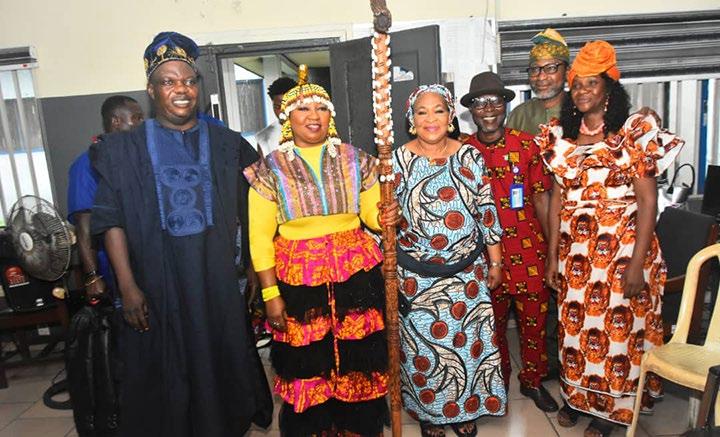
Operations; Ifeyinwa Omowole; Deputy Editor-In-Chief, NAN; Comrade Kevin Okunzuwa; Assistant Editor-In-Chief; Kamal Oropo; Chairman, NUJ-NAN 2025 Press Week; Mrs Vivian Ihechu at the NAN Chapel's 2025 Press Week Cultural Day in Lagos on September 23, 2025.

L-R: Group Chief Executive Officer, Airtel Africa, Sunil Taldar; Chairman, Airtel Africa Foundation, Dr Segun Ogunsanya; and Chief Executive Officer, Airtel Nigeria, Dinesh Balsingh at the world press conference to launch the Airtel Africa Foundation’s mission and projects across the Continent, in Lagos, Nigeria on
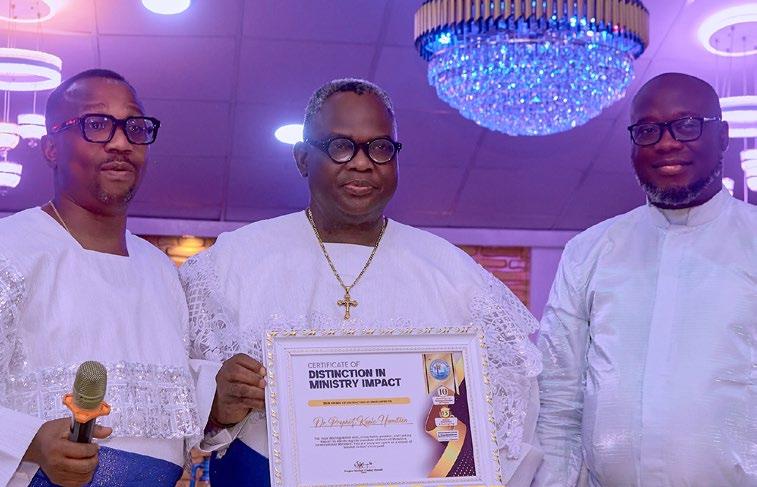
L-R: Host Shepherd, Celestial Church of Christ, Oasis of Wonders Parish, Prophet Michael Olawale; award recipient and Shepherd, CCC PraiseVille, Prophet (Dr.) Kunle Hamilton and Chairman, CCC Oasis of Wonders, Evangelist Kehinde Oyetade, during the 2025 Convention of CCC Oasis of Wonders tagged "Higher Ground" held in Lagos recently.



BY JUDE OBAFEMI
Nigeria has formally entered the race to host the 2030 Commonwealth Games, joining India in a contest that will be settled by the Commonwealth Sport General Assembly in November 2025. The Nigerian campaign frames the vote as an opportunity to place the Games on African soil for the first time in their 100-year history, carrying strong political backing from President Bola Tinubu's administration. This landmark bid was formally presented in London by a delegation including Shehu Dikko, chairman of the National Sports Commission, and Bukola Olopade, the commission's DirectorGeneral, marking a key step in the centenary edition's bidding process.
The claim that the 2030 Games would be held on African soil for the first time gives the bid immediate symbolic weight. Tinubu has described the opportunity as a chance to complete the circle of Commonwealth unity, stating that awarding the Games to Nigeria would affirm Africa's central role in the organisation's future. A win would be a landmark for the continent and for Nigerian sport, with Abuja standing as the proposed host city. However, the symbolism must be judged alongside practical
A win would be a landmark for the continent and for Nigerian sport “
questions about the cost and scale of delivery, particularly given Nigeria's economic context and the Commonwealth Games Federation's heightened emphasis on financial prudence.
The Nigerian bid draws strength from firm government backing and a focus on long-term benefits. Tinubu has issued a letter of guarantee to the federation, underscoring full federal support for infrastructure, security, and hospitality requirements. Officials point to existing venues such as the MKO Abiola Stadium in Abuja, which the National Sports Commission plans to renovate by the end of 2025. Plans also include upgrades to stadiums in Lagos, Enugu, Kaduna, and Uyo, with the Enugu project tied to preparations for the 2026 National Sports Festival. The proposal outlines 15 sports, including football to draw wider audiences and boost global interest, while Habu Gumel, president of Commonwealth Sport Nigeria, has committed to environmentally sustainable practices.
Finance represents the most obvious and immediate test. The government proposes the National Sports Development Fund, a bill before the National Assembly that aims to generate more than N1 trillion annually through creative funding mechanisms and incentives for private entities. This fund would address infrastructure gaps without heavy reliance on public budgets. However, hosting an event of this scale requires a mix of national funds, private sector partners and clear budgets for both capital work and operating costs. The record of other major sporting events shows that budgets can grow quickly when time is short or project control is weak.

Past experiences highlight significant risks that must be addressed. The 2003 All-Africa Games in Abuja led to the construction of the National Stadium, but maintenance lapsed, leaving facilities in disrepair. Nigeria's public finances and competing needs, complicated by debt levels and inflation, shape what is realistic to promise and what must be measured carefully. Any bid without transparent cost plans and binding guarantees will face scepticism from
the Games body and from international observers. Nigeria's insufficient funding for sports infrastructure has long hindered development, limiting talent growth and the ability to host events.
Project delivery and governance are inextricably linked to finance. The capacity to deliver venue work, transport upgrades and accommodation on a set schedule matters more than rhetoric. Nigeria has staged major regional events in the past, but delivering an event that meets the standards expected by athletes and broadcasters represents a higher test. Transportation networks and venue readiness pose further challenges, with recent analyses noting poor links between commercial centres and inadequate facilities for mass gatherings. The Commonwealth Sport review will look for clear project ownership, procurement plans that reduce risk, and independent audit and oversight to show that public funds are managed in line with best practice.
Security and transport are practical areas where Nigeria will be judged by evidence rather than intent. The Commonwealth Games will require steady, secure movement of athletes and officials between venues and a functioning public transport system for spectators. Security arrangements must prove effective, as the bid pledges comprehensive measures amid ongoing regional challenges. The bid documents and followup with the evaluation team must present firm plans for movement, contingencies and crowd management. Host cities that demonstrate operational plans which have been stresstested, including coordination across agencies, will have an advantage.
Legacy planning presents both opportunity and obligation. The case for long-term benefit must go beyond new stadia and show how facilities will be used by local communities, how coaching and sports pathways will change and how the event will support jobs over time. Nigeria's argument about youth and sport development is credible if there are clear, funded programmes and transparent delivery schedules tied to the physical works.
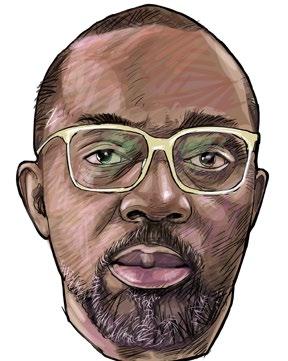

ogannah@thewillnews.com
TheCorps Marshal of the Federal Road Safety Corps, Shehu Mohammed, has renewed a controversial proposal to allow some road safety officers to carry firearms while carrying out their duties on highways. Mohammed argues that officers face danger when they confront large or overloaded vehicles and that extra protection could help them do their work more effectively. Speaking publicly on Thursday, he framed the proposal as potentially the sole effective method to uphold traffic laws, particularly when confronting overloaded vehicles driven by defiant operators.
Mohammed explained, "How do you stop a trailer or a tanker on the road? It is very difficult. A truck, especially a truck with probably 100 passengers on top with animals and you only have four personnel as a team on patrol trying to stop a trailer. How do you do that?" He added that such authority would bolster compliance, noting the Corps' record of dismissals for bribery among its ranks.
The proposal sits alongside a bill that moved through the House of Representatives in October 2024 and would create a Road Safety Special Armed Squad within the FRSC. The bill passed a second reading and was referred to a committee for further work, although it remains stalled in the Senate amid heated debate. The sponsors and lawmakers framed the change as a way to give the agency new tools to manage threats on major roads, with proponents arguing it would deter violations and compel drivers to halt, reducing incidents where vehicles evade checkpoints.
The case for stronger protection comes against a backdrop of significant casualties on Nigerian roads, with the FRSC reporting thousands of deaths annually. Transport unions have voiced limited support for the arming proposal, suggesting it might curb the lawlessness of haulage operators who ignore regulations for profit. Supporters link the idea to the need for stronger control of heavy commercial vehicles that cause a disproportionate share of serious crashes on highways, presenting it as one part of a wider plan to improve road management.
However, opposition dominates the discourse, with campaign groups, student unions and many citizens voicing sharp reactions. I do not support arming FRSC officers and don’t see any need for this. The reasons adduced by the Corps Marshall are not enough to arm officers. I am certain that what officers require are technology and road reforms, not firearms.
Critics point to the history of armed units in the country and to well-documented cases of police misconduct that have left deep public distrust. They warn that arming FRSC personnel could create a new source of harm rather than solving existing problems.
Public distrust of armed officers in Nigeria has strong roots. The #EndSARS movement and the documentation by human rights

groups of abuses by some police units shaped broad scepticism about expanding the power of uniformed bodies without strong accountability. Nigeria records substantial numbers of deaths yearly from police actions in routine settings, a pattern that can potentially repeat itself with the Federal Road Safety Corps. This fear centres on the potential for escalation during everyday interactions, with traffic stops already breeding resentment through documented cases of demands for bribes or aggressive confrontations.
While officer safety merits attention, with assaults documented throughout 2024 and into 2025, including incidents in Edo and Ebonyi States, firearms introduce significant complexities. Without stringent oversight, they could amplify existing issues like extortion, where officers solicit small payments to waive fines. The balance tilts heavily against armament, as enforcement might gain short-term strength yet risk eroding the trust essential for voluntary compliance.
Some of these viable alternatives deserve careful attention and offer more sustainable solutions. The FRSC has been developing technology-driven measures, including speed limiting devices for commercial vehicles and programmes to improve automated systems for enforcement. Technology offers practical enhancements, such as automatic number plate recognition systems to track offenders remotely, reducing the
need for physical stops. Electronic ticketing could automate fines, generating revenue while minimising human interaction, while speed cameras have already shown promising results in areas where they are deployed efficiently.
International studies show that automated enforcement devices and camera systems can reduce serious and fatal crashes when designed and managed with clear rules and public notice. These tools reduce the need for close personal confrontations and shift the emphasis to evidence and fines applied away from the roadside. Collaboration with police provides another layer, deploying joint patrols in high-risk areas to leverage existing armed units without duplicating resources. Comprehensive training programmes focusing on de-escalation and ethics would equip officers to handle resistance safely.
Infrastructure investment remains paramount, with proper road maintenance and safety barriers potentially preventing thousands of fatalities. Economic pressures fuel violations, as drivers overload vehicles to maximise earnings amid inflation. An independent oversight body with public access to complaint data would ensure accountability, aligning with the FRSC's strategy for safer roads through innovation rather than intimidation.
The debate over arming the FRSC could produce a clearer national plan to reduce crashes if it prompts lawmakers to fund modern enforcement technology and reform oversight systems. Mohammed's call for arms stems from genuine frustrations, but it overlooks the fundamental nature of traffic enforcement in a democratic society. Whether the legislature adopts the proposed amendment that has stalled in the chambers since 2024 with this new call from the Corps Marshal remains to be seen, but the weight of evidence and public sentiment suggests a different path forward.
Whatever decision the National Assembly and President Bola Tinubu take on arms for the FRSC, I am certain that the national discussion on the steps that can reduce road casualties will persist. Since Nigeria is not a gun country like the United States of America where adults are allowed to own and carry guns, I insist that viable solutions to curb accidents and traffic offences exist through technology, infrastructure investment, proper training and systemic reforms that address root causes rather than symptoms. The truth is that effective road safety comes through comprehensive approaches that prioritise prevention, education, and smart enforcement rather than the threat of lethal force.
We must disabuse our minds of resorting to the barrel of a gun as a solution to every issue, even a non-violent crime like a traffic violation. The right course lies in building systems that command respect through competence and fairness, not fear through firepower.
Viable solutions to curb accidents and traffic offences exist through technology, infrastructure investment, proper training and systemic reforms that address root causes rather than symptoms